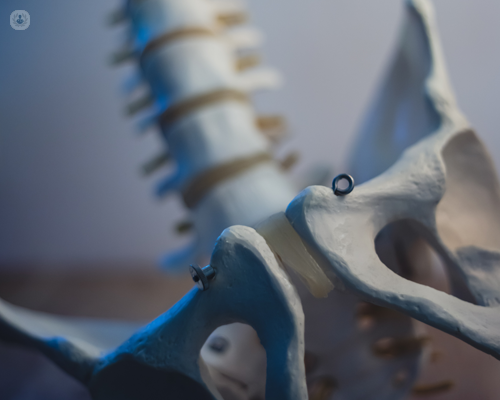Minimally invasive spinal surgery and its benefits
Escrito por:Minimally invasive spinal surgery (MISS) has transformed the treatment landscape for spinal conditions, offering patients a less invasive option compared to traditional open surgery. By using advanced techniques and specialised instruments, surgeons can address spinal issues with smaller incisions, reduced tissue damage, and quicker recovery times.

What is minimally invasive spinal surgery?
MISS is a surgical technique that uses small incisions and advanced imaging guidance to treat spinal conditions. Unlike traditional open surgery, which requires larger cuts and more disruption to the muscles and tissues surrounding the spine, MISS focuses on preserving as much healthy tissue as possible. Common conditions treated with MISS include:
- Herniated discs;
- Spinal stenosis;
- Degenerative disc disease;
- Spinal deformities like scoliosis;
- Spinal fractures or tumours.
How is minimally invasive spinal surgery performed?
The procedure involves the use of:
- Small incisions: Usually less than an inch, to access the affected area.
- Specialised tools: Tubular retractors or endoscopes to minimise damage to surrounding tissues.
- Real-time imaging: Fluoroscopy or navigation systems to guide the surgeon with precision.
- Targeted treatment: Techniques like microdiscectomy, laminectomy or spinal fusion, depending on the patient’s condition.
What are the benefits of minimally invasive spinal surgery?
MISS offers numerous advantages over traditional open surgery, including:
- Smaller incisions: Leading to less scarring and reduced risk of infection.
- Less muscle damage: Preserving the surrounding muscles and tissues results in a faster recovery.
- Reduced blood loss: Smaller incisions and less tissue disruption mean less bleeding during surgery.
- Shorter hospital stay: Many patients can go home the same day or within 24 - 48 hours.
- Quicker recovery time: Patients typically return to daily activities and work sooner than with open surgery.
- Less post-operative pain: A less invasive approach often reduces the need for strong pain medications.
Who is a candidate for minimally invasive spinal surgery?
While MISS is a suitable option for many spinal conditions, it may not be appropriate for every patient. Ideal candidates include those with:
- Localised spinal issues that don’t require extensive reconstruction.
- Failed response to conservative treatments like physical therapy or medication.
- A desire for a quicker recovery and less post-operative discomfort.
Patients with complex spinal deformities or multiple-level spinal issues may require traditional open surgery. A thorough evaluation by a spinal specialist is necessary to determine the most appropriate approach.
Why choose minimally invasive spinal surgery?
MISS not only addresses spinal problems effectively but also improves patient outcomes by reducing recovery time and complications. It allows individuals to regain mobility and return to their daily lives faster, making it a preferred option for many.
Consulting an experienced spinal surgeon who specialises in MISS can help you understand whether this approach is suitable for your condition and guide you toward optimal treatment.


